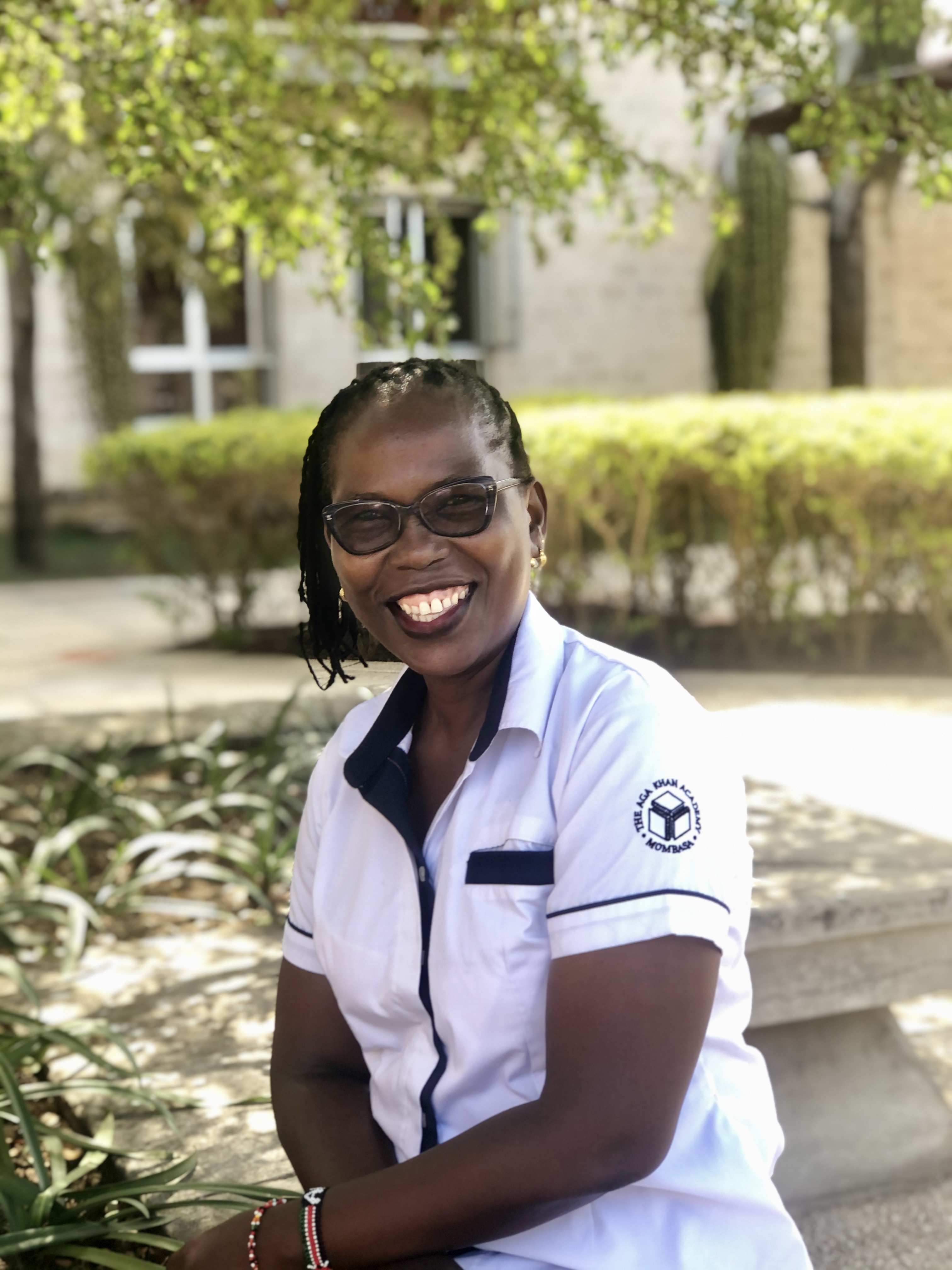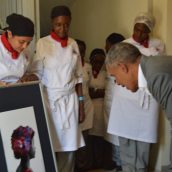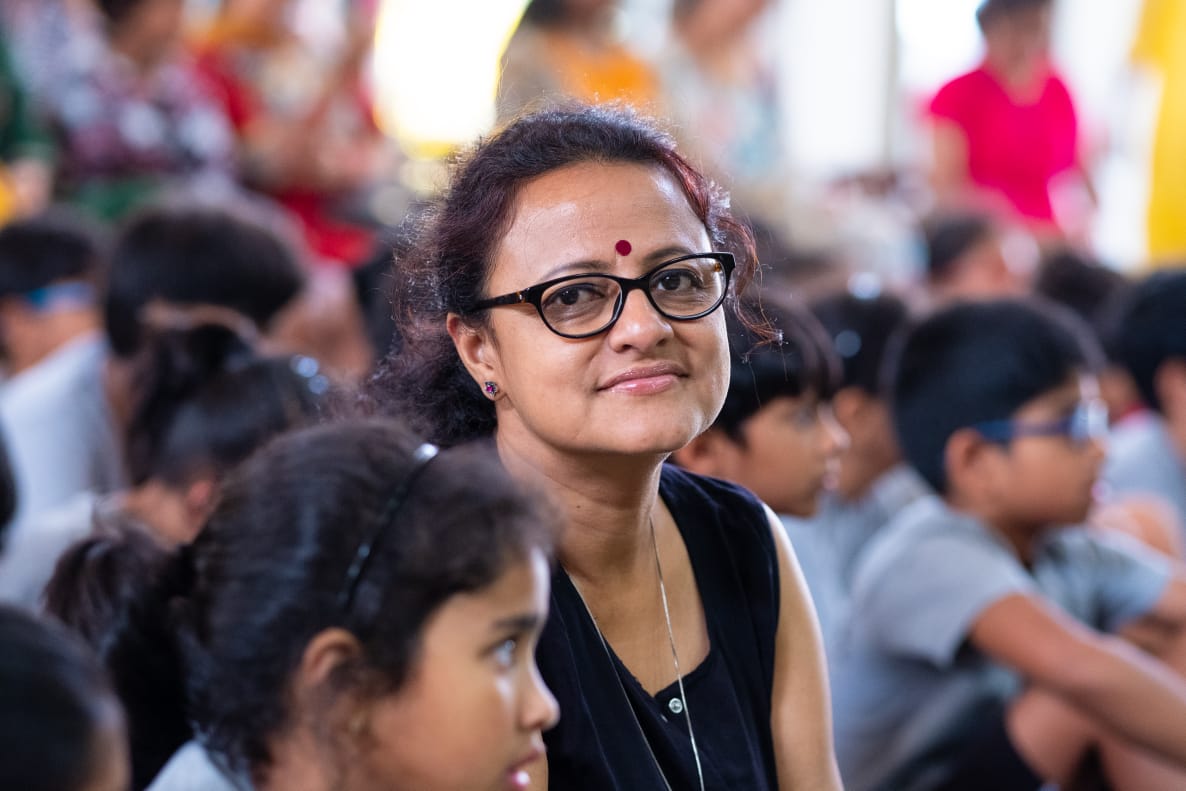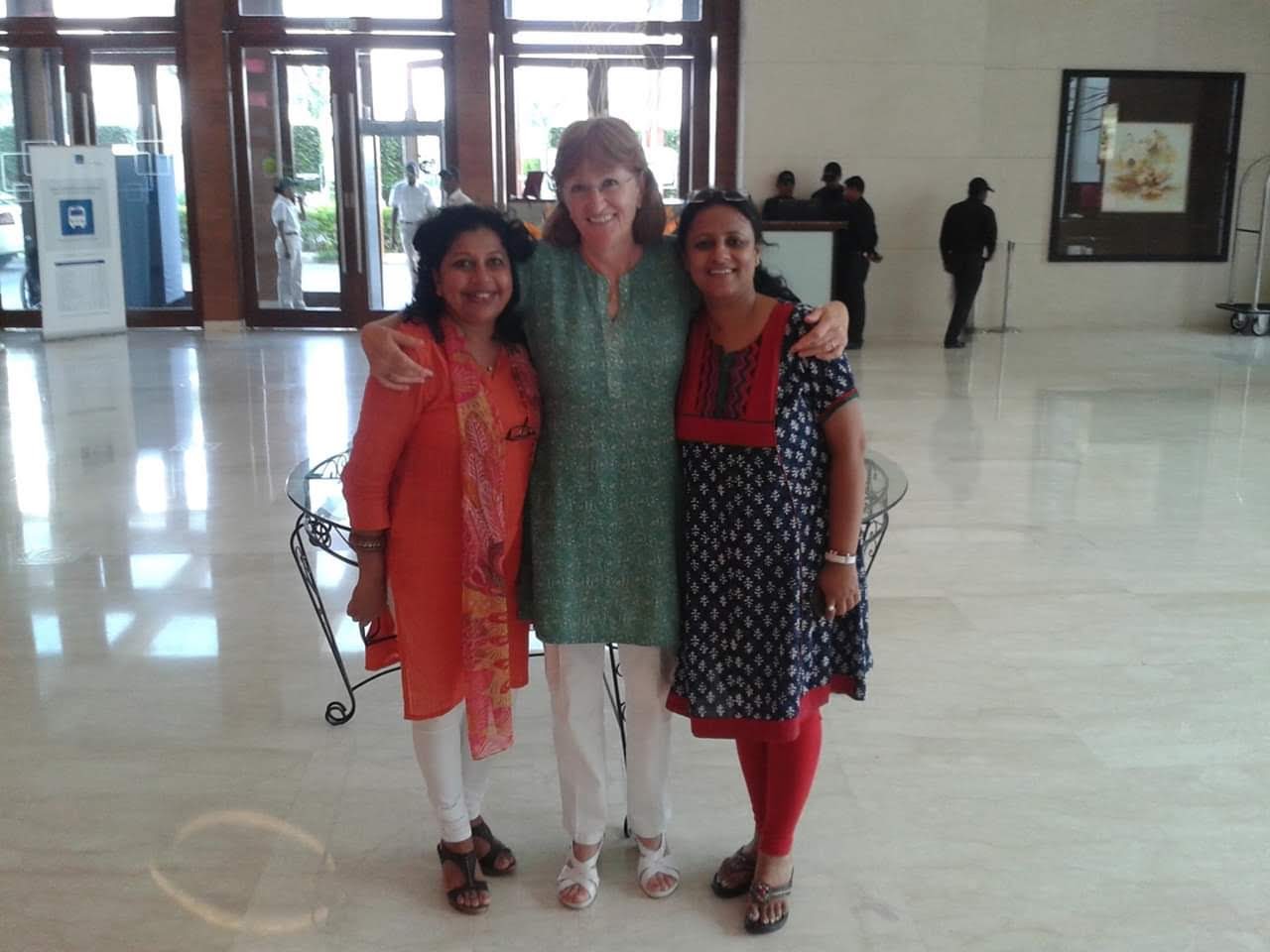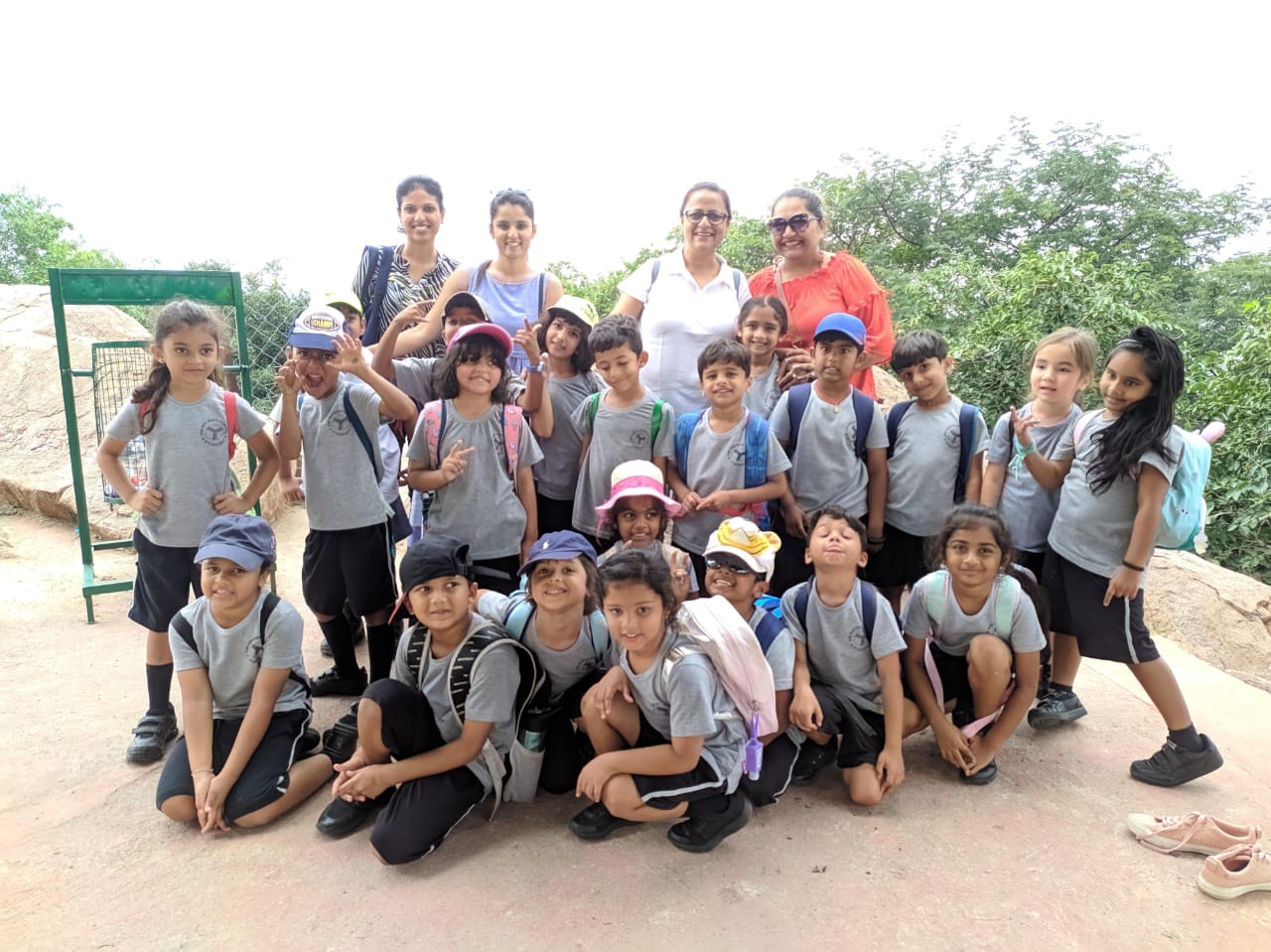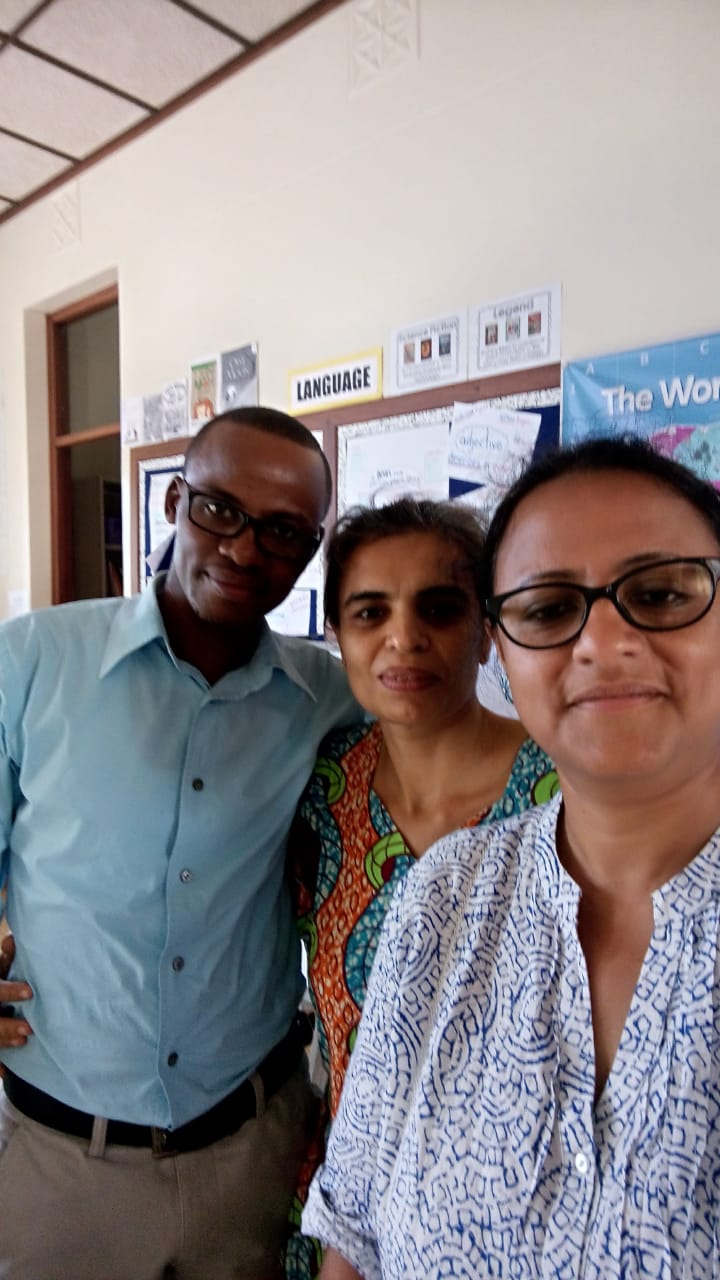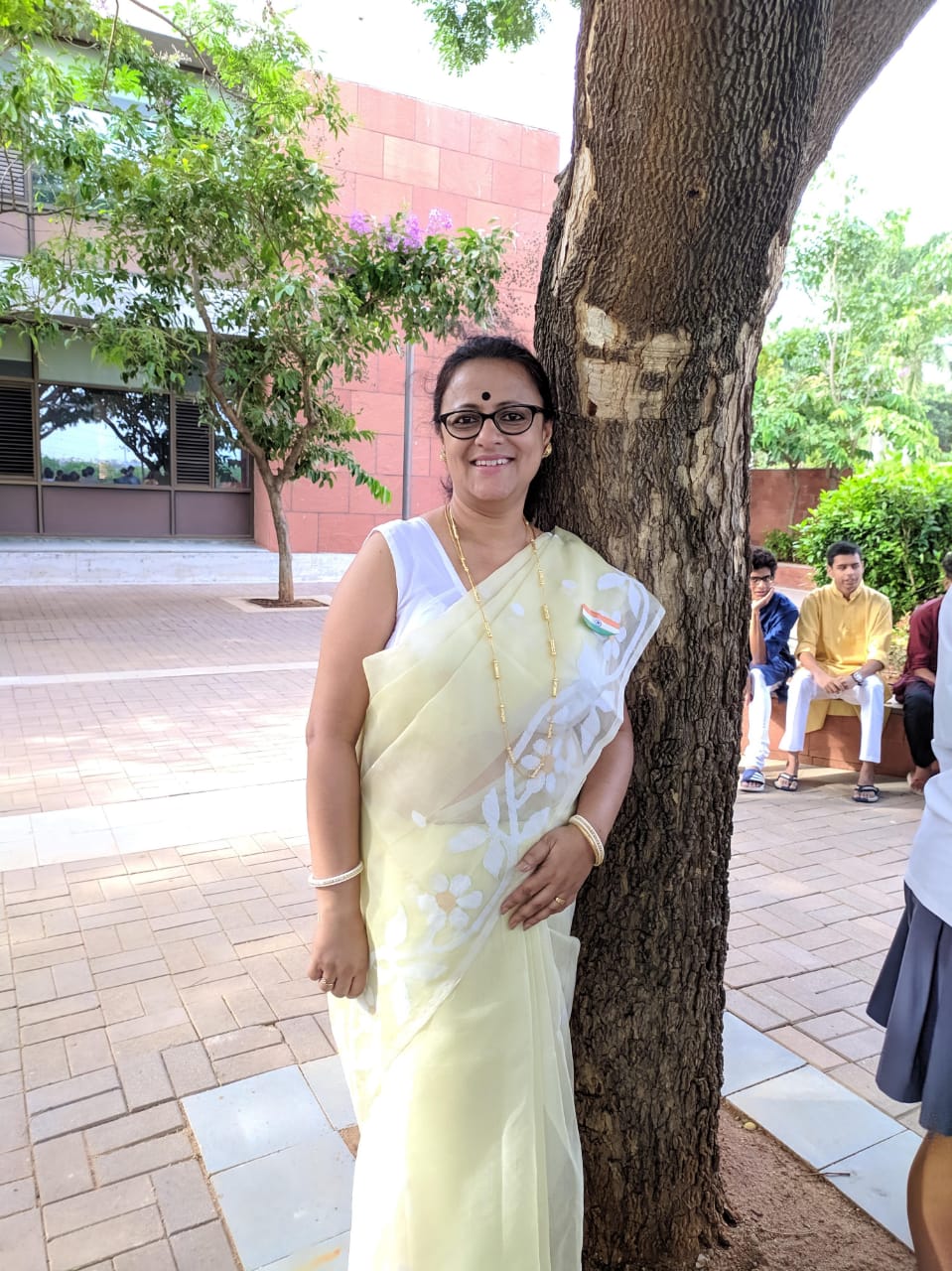Milka Gatungoh: The dedicated school nurse
When Milka Gatungoh joined the Aga Khan Academy Mombasa in 2010 as the residential school nurse, she knew her experience was going to be exciting and fulfilling. Her main role has been to address the physical, mental, emotional and social health needs of all school members, especially of students, to ensure their success in the learning process.
In the 10 years she’s been with the Academy, Milka’s favourite parts about the school is the pluralistic community, its culture of giving back to others in society, as well as the positive work environment that enables one to grow professionally.
“The cultural diversity and involvement in community service, which provides us with the opportunity to help others in a very special way, are my favourite things about the Academy,” Milka said. “There is also a lot of potential for one to nurture their career if they know what they want to achieve in life.”
As a little girl, Milka never liked to see anyone in any kind of pain so she always made sure to reach out to help. As the residential school nurse, she continues to be compassionate and empathetic when caring for students because she feels it makes a huge difference to understand what they’re going through in order to offer the necessary support.
“I always have to engage with students emotionally because sometimes their physical pains are caused by emotional distress, also known as psychosomatic illnesses," Milka stated. "Offering emotional support is sometimes the only remedy they need and not necessarily painkillers."
At the onset of the coronavirus pandemic, Milka said her role changed drastically, which has been rather challenging, but has gotten better with time. Being on the frontline, she has had to work extra hard to educate people on the virus, demystify the myths, fight any stigma and ensure all necessary protocols are followed for the safety of all school members.
“I have had to emphasise on the importance of people observing the World Health Organization safety measures regarding the virus, which was a little difficult initially as the reality of COVID-19 had not hit most of the students and staff,” Milka said. “As a caregiver on active duty, I also faced a little stigma because people thought of me as a risk factor for contracting the virus. Additionally, I’ve had some people express concern about visiting the health and wellness centre at the Academy for fear of being subjected to a COVID-19 test, especially when they have cold symptoms. Despite all these challenges, I’m glad I have been able to offer support and care.”
To further help spread positivity during the pandemic, Milka has been providing psychosocial support for students through virtual seminars by encouraging them to develop a caring attitude and helping them cope with any fear or anxiety they may have.
For Milka, the most rewarding part of her job is seeing the students she nurtures live healthy lives and succeed in their school life. As she continues to do what she loves the most, which is being of service to others, Milka said the fulfillment of her purpose in life is guided by a set of first aid goals, which are, to preserve life, prevent further injury and promote recovery.
“Whenever I’m attending to anyone, I am keen to ensure that I stick to these goals, which have become my motto in life,” Milka said.
Qamili Dave (Class of 2017): Mastering the art of cooking
Qamili Dave is a passionate culinary arts professional from Mombasa, Kenya who graduated from the Aga Khan Academy Mombasa in 2017, which she joined in Grade 1.
For Qamili, being part of the Academy was such an interesting and enriching experience – something she is always appreciative of as it shaped her to be the person she is today. For one, the open and trusting environment cultivated at the Academy helped to elevate her self-confidence as she fondly recalls, “The Academy really helped me to stand up for myself. I felt so safe asking teachers questions and they always encouraged it.” Joining college, she would continue to carry herself with the same confidence, eventually running and winning to become Student Council president at Boma International Hospitality College for two terms.
If there is one accomplishment Qamili is really proud of during her time at the Academy, it is the exciting opportunity she was afforded to intern at the Serena Beach Hotel Mombasa through the Academy's internship programme, where Diploma Programme 1 students intern with an Aga Khan Development Network agency or external organisation/company relevant to the field they would like to pursue. This chance, she says, defined the course of her career and future as it is where she became certain about pursuing a career in culinary arts.
“Although I knew I loved to cook, I wasn’t sure it was the right profession for me," she said. "However, during my internship, I realised I was on the right path. It was hands down the biggest stepping stone to my career because I learnt almost all the basics and this made college a breeze. The experience also introduced me to the real working environment; how to formally interact with people and some of the challenges I would face while working. All in all, I really enjoyed it.”
Although she has moved back home to Mombasa after graduating college because of the impact COVID-19 has had on the hospitality industry, Qamili says this has been a blessing in disguise. She has used this time to complete two online courses from Harvard University – "Science & Cooking: From Haute Cuisine to Soft Matter Science" in both chemistry and physics. She has also dedicated this time to growing her food page (@chaqula_) on Instagram and exploring recipes from different cultures. In addition, Qamili has been helping out her parents with their advertising and signage business, "Eyecatchers & Daughters", which she says has taught her a lot about running a business.
“It’s been eye-opening and refreshing."
Having found what she believes to be her calling in life, the thing that Qamili loves most about being a chef is preparing a good satisfying meal that warms the hearts of people, especially her loved ones.
For her words of wisdom to current students at the Academy in Mombasa, Qamili says: “I would tell them to appreciate their teachers and everyone supporting them. I would also tell them to work smart; to be effective and efficient in everything that they do. Lastly, I would advise them to take advantage of the internship opportunities provided by the Academy, to get as much exposure as they can as this will really give them insight on the career path that is right for them.”
Videos
The videos below provide more information about the Academies and glimpses into student endeavours at the Aga Khan Academy Mombasa.
Pages
Naini Singh: Mombasa to Hyderabad
Many educators get the opportunity to move within their profession so that they may experience new challenges and growth, but few have the opportunity to move continents in pursuit of such experiences. Naini Singh, who has taught at both the Aga Khan Academies in Mombasa and Hyderabad, has been fortunate to do just that.
Naini SinghThough she was born in Kasama, Zambia, Naini’s parents moved to India when she was very young. Following in the footsteps of her father, who taught at the Aga Khan High School in Tanzania, Naini returned to Africa thirty years later in a professional capacity. “My husband accepted a job offer in Kenya; it was a very exciting move for me as I was going back to the continent where I was born.”Naini was extremely pleased to have the opportunity to work with the Aga Khan Academies (AKA). “My youngest was ready to go into school and I had a lot of time on my hands so was ready to rekindle my career. The Aga Khan Academy seemed to me the best school to try and apply to as it was a lively, buzzing place, and I longed to be part of it.”
An AKA teacher for over six years, Naini understands the need for institutions like the Academies to exist worldwide and foster pluralism. “In Mombasa, the school provides a mosaic of the rich diversity of the population: children come from diverse cultural, ethnic and religious backgrounds within the country, [as well as] from China, Italy, Russia, Canada and India among others. Teaching in a multicultural environment enriches the curriculum. There was plenty of scope to talk about vital concepts such as acceptance, tolerance and celebration of differences.”
The grade four teacher is now back in India and is teaching at the Academy in Hyderabad. She is enthusiastic about the coming years and believes that the Academy’s model for teaching will develop its students into successful global citizens. “The children in Hyderabad are new to the International Baccalaureate Primary Years Program (PYP) but they love it! Whenever I talk to them, they are always keen to share how different and mundane their learning was in the other schools. Initially, they were afraid to answer questions, or take risks and do things in a different way; now the students are confident PYP practitioners. These bright young children show definite potential to be leaders in the community; they are ready to learn and lead.”
Now that there are two schools in operation and the AKA network has begun, teachers are able to take advantage of the opportunity to go on exchange and experience teaching in another Academy in a different part of the world. Naini agrees with the importance of having educators broaden their horizons. “The main advantage that a thriving exchange program will bring to the Academies is the sense of unity among the staff; reaching out and connecting with teachers across continents is sound pedagogy as it also creates a feeling of belonging to a wider community. Teachers encounter new cultures and meet new colleagues; they broaden their horizons [and] get a fantastic opportunity to learn about other [traditions] and religions. They become the bridge that links the Academies from ground level.”
Currently Naini is completing her Master’s degree in Teacher Leadership at Walden University, as well as teaching. It is obvious that she has not only transitioned successfully into her new position, but she is thriving and so are her students.
Videos
The videos below provide more information about the Academies and glimpses into student life at the Aga Khan Academy Hyderabad.
Pages
Videos
The videos below provide more information about the Aga Khan Academy Maputo and the Aga Khan Academies programme.
Pages
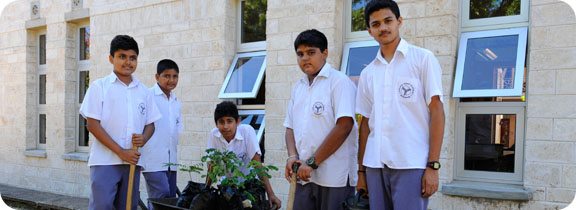
Community Service
Community service is a major part of the student experience at the Academy. Both the curriculum and student life incorporate aspects of community service.
Service opportunities extend the educational experience beyond the classroom and help our students learn about the real-world applications of their studies.
Through community projects with local organisations and groups, our students gain a sense of the connections between their education and the world around them. Students can participate in a variety of structured community initiatives and internships to learn about their place in the world and how they can make a difference to the lives of people in their community.
By partnering with local agencies of the Aga Khan Development Network (AKDN), students learn first-hand about the work of the organisation, and make tangible contributions to the agencies' projects.
In addition, community engagement gives our students an understanding of broad concepts such as human rights, dignity and autonomy, while emphasising the ethos of leaving the world a better place.
The Aga Khan Academy Mombasa used the hiatus due to the COVID-19 pandemic to rethink and enhance its service learning programme. Although a part of the International Baccalaureate (IB) curriculum, the Aga Khan Academies further developed and connected the IB's service learning programme with AKDN's approach to development. From being a standalone experience for residential students on Saturday mornings, which was voluntary for day students, the service learning programme has now been incorporated into the school's timetable, occurring on a weekly basis. Led by the service learning team, all Senior School Middle Years Programme (MYP) mentors have been inducted into the new model and all MYP students now participate in the programme. A handbook has also been developed and all service learning activities are explicitly linked to the curriculum to ensure the programme connects to classroom learning. At the culmination of their service initiatives, the MYP students showcase their projects to the Academy's community, and engage with the Academy's Primary Years Programme students as well as external community partners.
Examples of service projects:
Coast Rural Support Programme: Tree planting at Mtaa community reservoir. The reservoir was created as a community project. The outreach project involved planting 700 indigenous seedlings around the reservoir.
East African Quality in Early Learning: Creation of the fun reading day initiative to promote early grade reading. Inspired by the common 1:10 ratio of students to books in local public primary schools, the first project was to collect books to establish a library at Ng’ombeni Primary School. Through a book drive and other community projects, students collected books and catalogued and prepared them for library use.
Our Junior School and Diploma Programme (DP) students visited the Ng’ombeni Primary School for group reading sessions. This project was then handed over to upcoming DP students to continue.
Education for Marginalised Children in Kenya (EMACK): Student’s council training workshop at Longo Primary School. Sarrah Sheikh came to know the Longo Primary School through her summer placement service. She went on to assist EMACK in establishing student leadership bodies, beginning with Longo Primary School. Topics covered went from effective leadership to communication tools, and the difference between prefects and elected student leaders. Three weeks after this project, the Kenyan government announced the phasing out of the prefect system and the introduction of elected student councils.
“I realised that what we take for granted is like a miracle for other people.”
Madrasa Resource Centre: School painting project at Mpirani Nursery School. After visiting a school in disrepair, the DP students decided that a bright place was needed for the students to learn. They mobilised their fellow students to create bright learning materials and to repaint the school.
Laboni Banerjee: cultivating community wherever she goes
Laboni was immediately attracted to AKA Hyderabad because of the vision and mission of His Highness the Aga Khan for the Aga Khan Academies. She found the values of the Academy to be more aligned with her own ethos than the school she was previously working at before joining the Academy.
“Over the course of 10 years at the Academy, I have found myself a part of a vibrant and caring community,” Laboni said.
When joining the Academy in 2010, Laboni recalls it being a much smaller school then, especially the International Baccalaureate (IB) Primary Years Programme (PYP). There were only seven PYP teachers and the Junior School principal at the time, Diana Smith who started the PYP at the Academy, along with Sreelatha Kumar, who was the PYP coordinator at the time and is now the Junior School principal. AKA Hyderabad received the Diploma Programme and Middle Years Programme authorisation in 2012 and 2013, respectively. The latter year is when Laboni remembers seeing notable growth in both students and faculty at the Academy.“Early years in the PYP were busy,” Laboni said. “During this time, I was also focusing on identifying myself as a member of the PYP team and growing with the school.
Over the course of her time at AKA Hyderabad, Laboni has taken on various roles. Along with being a Grade 3 teacher, Laboni took a role in the PYP reading and writing assessment in which she collected evidence and data. Laboni also helped with the Admissions Department and was responsible for checking the vocabulary of students applying to the Academy. Reflecting back, Laboni said she greatly appreciated this role because it allowed her to build a special relationship with parents and students from the very beginning of their Academy journey.
“While working with the Admissions Department I valued meeting a large number of people who were enthusiastic and eager to learn more about the PYP in the early years.”
From 2012–2014 Laboni helped with AKA Hyderabad’s Outreach Teacher Training programme, which is a core part of Academies’ Professional Development Centre (PDC) that trains local teachers around the community in various subject areas and enhances their pedagogical skills.
A few years ago, Laboni also had the opportunity to travel to the Aga Khan Academy in Mombasa, Kenya where she truly began to appreciate the pluralistic approach to education and diverse cultures and backgrounds the Academies values and emphasises. During her time in Mombasa, Laboni met Titus Mutemi, who was a recent graduate of the Teacher Preparation Programme – a programme provided by the Academies that trains teachers to become IB educators in their communities – and is now the PYP coordinator at AKA Mombasa. Laboni recalls Titus being filled with great enthusiasm and eagerness as he wanted to know everything about her class including the assessment techniques, books she has students read, any material created for the class and much more.
“Partnering with Laboni was such an enriching experience,” Titus said. “Her flexibility and open-mindedness made our collaboration easier and enjoyable. Years have gone by and yet her enthusiasm and unique way of engaging with the young learners is still memorable.”When AKA Hyderabad transitioned to online learning in March 2020 due to COVID-19, Laboni said there were a few challenges she faced but was able to overcome due to the support she received from the Academy.
“In the PYP we have always used technology as a learning and teaching tool. However, when we shifted to complete online teaching, building the bridge with new students I had never met before was the biggest challenge. With physical teaching, I was able to bond with my students on a personal level, but this changed with distance learning.
However, the Academy always supported me and made me feel comfortable working on a virtual platform with a new group of learners. Assigning me to be a part of various online professional development sessions was immense support as it helped me develop my understanding of the application of various teaching tools. The virtual learning and teaching also enabled me to look at my own teaching philosophy through a different lens and reimagine my teaching strategies. Now, it is my greatest joy and top priority to see my students online and have personal conversations with them.”Laboni said she cannot imagine her future without the Academy being a part of it. She is always involving herself in different roles throughout the Academy in order to connect with more students beyond the PYP and see how they turn their passions into reality. Laboni also said she is fortunate to be a part of a community that is continuously supportive and where she is encouraged to grow each day as an educator and individual.
“The greatest part about delivering education at the Academy and being a part of its community is that every day is a learning experience for me. I am always excited to see my students become open-minded young adults, chasing their greatest passions in life and thinking about how to make the world a better place for all.”
Pinto Belo João: A determined teacher and a collaborative planner
“Being a teacher is not easy, because we have to teach and learn every day. I chose a career in teaching because I like to share what I know with others, especially young people, to help them to overcome the challenges in life. Being a teacher is like taking care of something special, so I decided to take care of that special thing, walking together in order to discover the world around us.”
Pinto Belo João is a grade 2 teacher at the Aga Khan Academy in Maputo. Born in Maputo, Mozambique, Pinto attended a teacher training course in Matola in 2007 where he became a primary teacher and then attended Pedagogical University in 2011 to study education. He came to the Academy as part of the Teacher Preparation Programme (TPP), which was established by the Aga Khan Academies to train recent teacher graduates to become International Baccalaureate (IB) teachers.
“Honestly I didn’t know many things about the Academy before I joined, but I always was eager to learn and grow professionally,” says Pinto. Through the Aga Khan Academy, Pinto says he has grown professionally in terms of learning new approaches to teaching and learning, trying new things and giving himself a chance to learn more. “Through professional development, the Academy helped me become a more effective teacher and a collaborative planner,” he says proudly.For Pinto, the most rewarding aspect of the Aga Khan Academy is teaching while surrounded by experts. This environment has given him the opportunity to try new things and granted him time to reflect on teaching strategies. This has been both valuable and powerful for Pinto as it allowed him to share experiences related to classes and receive guidance and support from others. What Pinto really likes about the Academy is the integration of the Aga Khan Curricular Strands. “In my opinion these Strands make us unique and different from others,” he says.
Reflecting on enlightening experiences at the Academy, Pinto narrates a particular day when he was teaching mathematics through games. He says that while he was giving instructions on how to play the game he was surprised to see the students already playing the game before he could even finish explaining. “I learned something that day: we should never underestimate our students. Sometimes we think that we have to teach something, but the students already know it. We need to be careful in our approaches,” Pinto remarks.
In this way, Pinto has learnt profoundly from his students and feels that the teacher-student relationship, reinforced by trust, is of the utmost importance. “We need to establish trust so that the process runs toward success both inside and outside the classroom,” he says.Relationships in the classroom must also involve parents – Pinto knows the importance and necessity of parental involvement in the education of their children. He regularly updates the parents about what they do in class and about their school trips – he also ensures that he shows parents the newsletter with stories of learning from the classroom. Some of the homework Pinto assigns includes parent personal experiences that they can share with their children.
At the Academy, Pinto says they try as much as they can to involve all students in activities and give each of them a role in groups to make them appreciate each other’s abilities. “By promoting activities like social community, [this] makes the students reflect on their own actions,” he remarks. Pinto explains that students come from different backgrounds and nationalities and that this is what makes the residential environment multicultural and promotes pluralism. When the students are exposed to this environment, Pinto says, “They learn more from each other and respect diversity. It is a great experience for them.” Ensuring a climate of pluralism on campus is not an easy task, Pinto says. “But through student’s responsibilities, we can ensure that they are working together.”
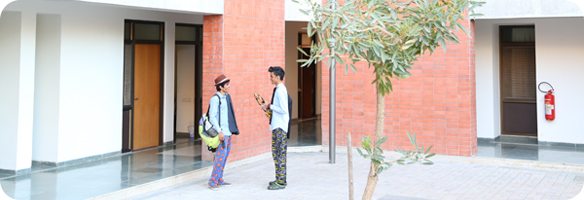
Living on Campus
Residential life at the Academy complements and extends the academic experience. Our residential programme includes a broad selection of activities and leadership opportunities to enhance students’ learning and growth.
The Academy’s residences include facilities to accommodate both students and teachers. Our residences house boarding students requiring accommodation as well as those participating in international exchanges between the Aga Khan Academy Hyderabad and other Academies and schools.
Teachers' quarters on campus house both resident and visiting faculty.
 Learning beyond the classroom
Learning beyond the classroom
Our residential programme is about the learning and growth that comes through constant interaction with a diverse and talented group of teachers and peers.
Mealtimes and other gatherings provide our residential students with opportunities for informal interaction as well as for discussions, meetings, language tables and study groups.
The focus of the residential experience is on students’ intellectual, social, spiritual and physical growth in a structured and ethical environment. Many of the least tangible but most important elements of an education – the development of practical leadership skills, the capacity to make ethical judgments, the ability to navigate through complex cultural settings – are formed outside the classroom.
The safe and secure environment of the Academy’s boarding facilities gives students of all backgrounds the opportunity to thrive emotionally, intellectually and physically.
